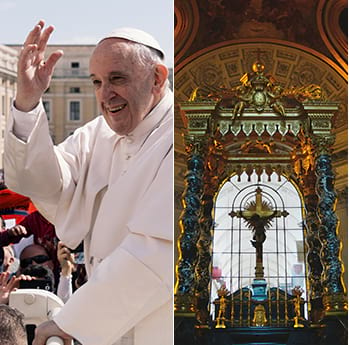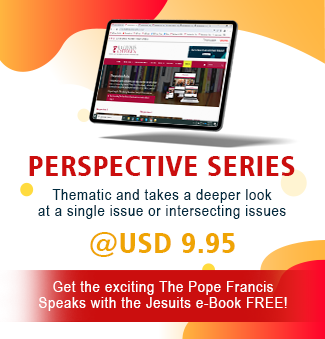Metz is not only a French city on the Moselle River, but also the name of a German theologian who gained worldwide fame: Johann Baptist Metz.[1] His name is associated with powerful key expressions such as “the new political theology,” “theology after Auschwitz,” “compassion,” “open-eyed mysticism,” and memoria passionis.
After his death on December 2, 2019, The New York Times published an obituary that described the German theologian as a “pioneer of Jewish-Christian dialogue in the aftermath of the Holocaust.”[2] During his life, judgments and evaluations of him were diametrically opposed: “Some consider him the ‘shooting star’ of a critical and cosmopolitan theology; others see in him a Marxist agitator, an enemy of the Church.”[3]
Viennese theologian Johann Reikerstorfer, in the period between 2015 and 2018, edited and published a collection of Metz’s writings, a nine-volume edition, aimed at preserving his work over time.[4] This makes it possible to trace his long academic journey.[5] An interesting experiment is to take volume 8 (“Conversations, Interviews, Responses”) and let the German theologian comment and interpret himself, which he often did in interviews in a very concise, almost shorthand way; this can foster a first approach to his books and articles.
Theology and consequences
Metz was never short of good formulations: he intervened in debates, he was convincing. Inevitably, there were conflicts at different levels, because he never did theology from the denigrated ivory tower, simply remaining within the theological or ecclesial sphere. His belief was that theology must be relevant in the public space. Metz understood and did theology, as he said, “with an eye on the world,” so as not to fall into a trap represented by the “danger of an ecclesiological codification of the discourse on God.”[6]
For this reason, according to him, theology ought to be political, always willing and able to provide explanations, in the spirit of the paradigm of fundamental theology: “Always be ready to make your defense to anyone who demands from you an accounting for the hope that is in you” (1 Pet 3:15). Mysticism and politics, action and contemplation are inseparable. It is all about – and this is the decisive point – a “mysticism with open eyes.”[7]
This article is reserved for paid subscribers. Please subscribe to continue reading this article
Subscribe
Welcome to
La Civiltà Cattolica !
This article is reserved for paid subscribers
Please login or subscribe to continue reading this article
























